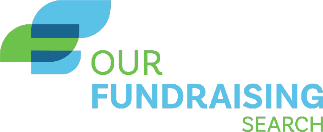If you work for a healthcare organization or one serving families, it may be all hands on deck in your shop. If so, then your efforts should be rewarded ten-fold now or in the future because of your good works. So, our prayers and good wishes are with you.
If you are not intimately involved in providing immediate service to patients and clients, then while there is some cause for concern, there are things we can all do to advance our institutions during these challenging times.
What you can do during challenging times
Of course, you should monitor the news for any outbreaks or information specific to your area, which translates into areas affecting your staff and your donors. Follow the guidelines provided by the CDC in terms of cleanliness of your facility and awareness of increased threat of transmission. I for one have given up shaking hands or hugging close friends-for now. And I stop and think every time I touch anything or hear someone cough. Just be smart, and cautious. Stay hydrated and make sure you are taking care of yourself-eat and sleep well, exercise as you are able and by all means, keep a positive mental attitude.
What if you’re starting a campaign?
This may not be the best time for a capital campaign, while we wait to see where the stock market lands as a result of the virus. I worked at my kids’ school during the September 11 heartbreak. Nonprofits all over Atlanta were laying off staff and cancelling campaigns because it was difficult to raise funds anywhere except emergency relief efforts. Maybe take a pause to see how long the situation lasts.
I read earlier that ½ of all fundraising consultants expect the next 3-6 months to be difficult for fundraising. But that means the other 50% have not weighed in. Perhaps you can delay your feasibility studies a month or two to allow the market to bounce back. It is a great time to work on your annual support and it is always a good time for stewardship!
Get caught up on administrative tasks
When was the last time you cleaned up your records? What about your computer files? Hard copy files? Perhaps you are one of the fortunate ones who can work from home. There is no need to sit and fret. Let’s get organized! Do those tasks you never take the time to do. If you are lucky enough to be working at home, enjoy the silence. Breathe. Focus.
Good communication is essential
Some of us will not be traveling for a while. There are other ways of communicating with your donors. Don’t just rely on texting. That may be quick, but it is so impersonal. You can Skype or FaceTime. I still love to receive a personal, handwritten letter or card, don’t you? Make sure you have a supply of stationery and postage stamps on hand. In some neighborhoods, the postman will even bring the stamps to your address!
You may need to cancel large or small events-for now. But make sure you thank your volunteers. They may be receiving a well-deserved rest. Just make sure they know how important they are to you and when it is time to come back. You can call them or write them, too. Send a flower arrangement. We will all appreciate hearing that we are missed especially in events like this.
If you are a skeleton crew in the office, make sure your employees are cross-trained. Should one of your team members become seriously ill, others can pitch in.
Refresh your online presence and organizational materials
Refine your case for support. Dust off your volunteer training materials. Revise your top prospect lists. Our Fundraising Search’s most popular fundraising training session is 30 Asks in 30 Weeks. Spend some time prepping your materials and conducting your donor research so you can launch your own major gifts program at the earliest possible moment.
When was the last time you updated your website? What about your other social media and branding materials? Your online and direct mail solicitations can still be sent on time. You may wish to acknowledge the current state of affairs and explain why you are asking for support especially at this critical juncture.
A true account from a hurricane disaster
I was sending out a mailing one time to 60,000 prospects. A supervisor came in and told me we couldn’t possibly send a mailing now because some of our prospects had been adversely affected by a hurricane. I said we couldn’t not send the mailing out or we wouldn’t make our projected goals for the year. We would never be able to make up the time in our schedule, and not all of our constituents had been negatively affected anyway. Our compromise was to send the original mailing to all those unaffected. We kept the same mailing for the hurricane area but added an extra monarch size-letter with a message from our President. It basically said that we wanted to include them because we didn’t want to leave them out and because their support was important to us. We also acknowledged the hurricane and the message went on to say that if they were negatively affected by the hurricane to let us know what we could do for them.
Do you know what happened? We got a tremendous response from our solicitation and those living in the hurricane zip codes gave 13% more than the group in the non-affected area. Never assume you know how your donors will respond or arbitrarily leave them out. Let them know you are aware of the situation, that you care about them, and do your best to carry out business as usual.
Is it possible to raise money during a disaster or a pandemic?
The answer is yes! That would be a resounding yes!
Does your organization have a crisis management plan? If not, this is a great time to prepare one!
You can start it on your own or engage professional help. If not now, then when?
Important steps for your organization to take
Have you updated your organization’s strategic plan? Again, this might be a good time to do that. Make sure to include opportunities for your donors to be engaged with your organization in ways that do not exclusively focus on events and their presence.
Does your organization have a succession plan, not just for the executive director but for other key positions as well? Get a head start on your employee reviews, something most nonprofits do not spend enough time on.
You would be surprised how many nonprofits I meet with that do not even have a written fundraising plan. Well, there are no excuses now. Write down the strategies you will use this year to hit your revenue goals and be sure to leave time at fiscal year-end for evaluation. While you are at it, take a look back at the last few years. You may have heard the fundraising trends through Giving USA or other sources for the US. What exactly has been happening at your organization-and why?
Engage a consultant or conduct your own mini-development assessment in the time you have available. Do you have the right employees in the right positions? Do you need to add staff? Job descriptions for most positions are available on the internet. Is there an online professional development opportunity available for you or someone on your team that can be done now?
What programs are you offering? Do you need to drop any activities that just break even or worse? Refine your stories. Identify the board members or other volunteers you want to recruit when the time is right. Do you need to update your technology or other resources? Make a list for when you are raising more funds and have the money available for upgrades in your systems.
A time to reflect and refocus
Finally, get out your bucket list and dream big. I always keep a list of the things I want to do someday, if I ever have the time. I have a personal one and a professional one. Use this coronavirus situation as a time of reflection and improvement for you and your development operation. Once we are past the coronavirus as we see it today, you will be able to jump start your fundraising and set the tone for your organization in the future.






Leave A Comment